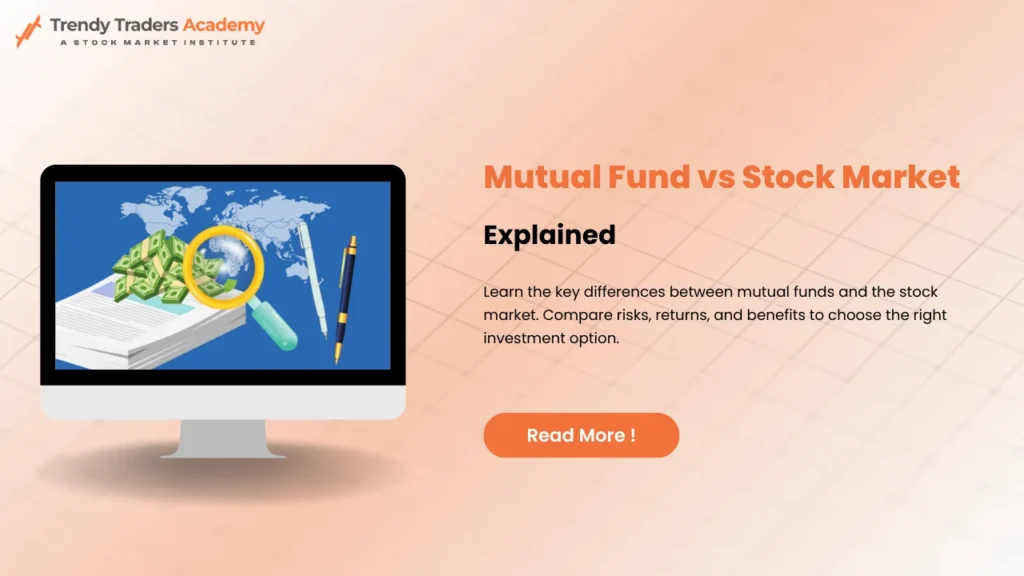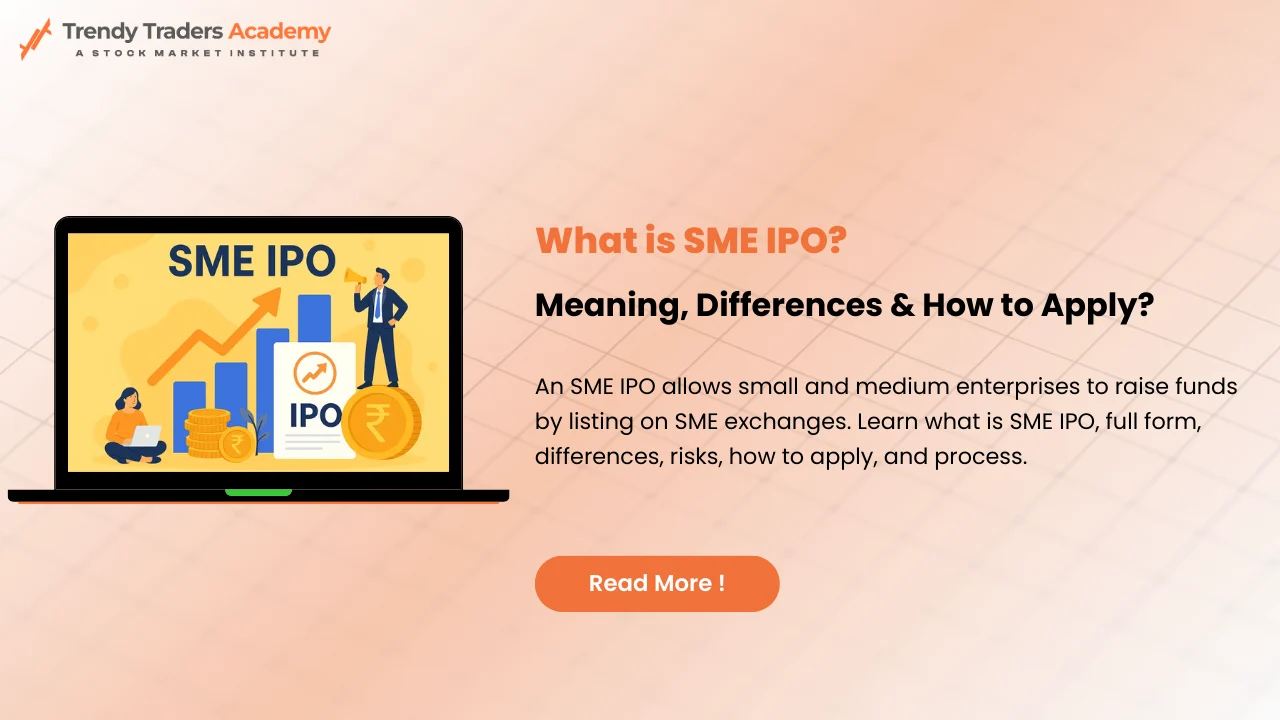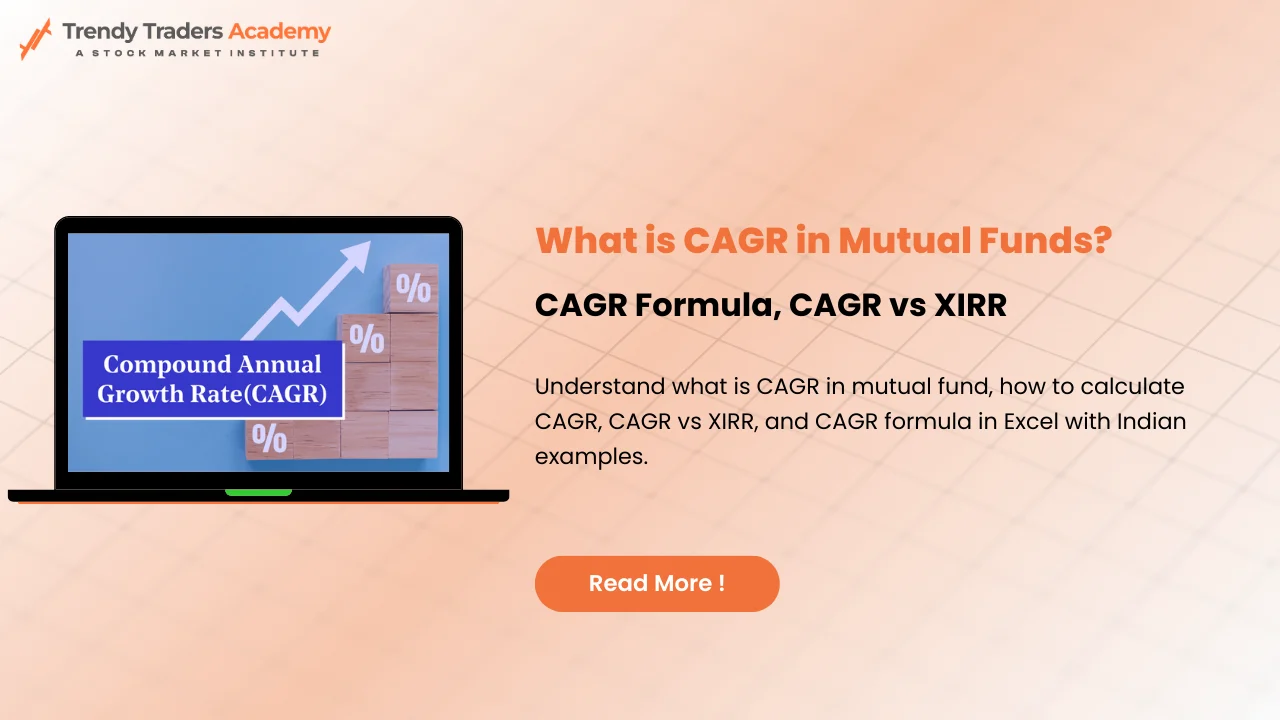
The Difference Between Mutual Fund and Stock Market: A Beginner’s Adventure into Investing
Imagine This: Two Friends, Investment Stories of two different people
Consider two friends setting out on the path of multiplying and growing their money. One decides to sail solo, navigating their own boat through waters that are untamed. The others get on a sturdy cruise ship, putting the trust on a captain who is experienced to navigate the journey. Both look to reach the shore- their financial targets- but the paths and peace of mind vary by a great margin.
This simple story shows the essential differentiation between mutual fund and stock market investing. Each person’s approach suits their own personality, knowledge and risk tolerance.
Sailing Solo: What Does Stock Market Investment Mean?
The stock market is a vast, dynamic ocean where each stock represents a vessel. When one purchases shares directly, they become the captain of their own ship, selecting companies they want to own.
- Direct Ownership in companies: Holding shares in specific companies.
- Freedom and Control: Choose exactly what one wants to invest in and when they need to buy or sell.
- Potentially High Reward: Skilled navigation can give rise to impressive gains.
- Volatility and Risk: Rough waves such as economic shifts or company troubles can rock one’s boat.
- Learning Curve: Requires keeping an keen eye on charts, news, and cycles in market.
Boarding the Cruise: The World of Mutual Fund Investments
Mutual fund Investments are like joining a well-managed cruise: you offer your fare, and professional sailors navigate a diverse fleet of investments on your behalf.
- Pooling Resources: Your money blends with many investors’ funds.
- Expert Management: Seasoned portfolio managers take control of the course.
- Diversification: Multiple asset types diversify risk.
- Ease and Accessibility: Starting with less capital and minimal efforts.
- Steady Growth: Often smoother progress compared to single-stock ownership.
Mutual Funds vs Stock Market Investment – Which Voyage Fits You?
Aspect | Stock Market | Mutual Funds |
Ownership Control | Full control over stock choices | Indirect ownership via fund units |
Risk Level | Higher risk with individual stock swings | Lower risk thanks to portfolio spread |
Knowledge Demand | Requires active research and tracking | Professionally managed |
Entry Barriers | Can be high for meaningful diversity | Generally low, beginner-friendly |
Decision Frequency | Frequent trading possible | Trades occur per fund policy (often daily NAV) |
Costs | Brokerage fees per trade | Management fees and expense ratios |
Why the Difference Matters on Your Investment Journey
Choosing between mutual funds vs stock market investing affects your experience and peace of mind.
If you want to personally steer your investments, reacting quickly to market weather, direct stock ownership suits your adventurous spirit.
If one prefers trusting experts while avoiding the storms on a daily basis, mutual funds offer a reliable vehicle.
Cost Considerations: Navigating Fees and Charges
Knowing what you pay is crucial.
- Stock Market Investing often involves paying brokerage with every buy or sell order.
- Mutual funds Investments include management fees annually, sometimes with entry or exit loads.
These fees impact the returns you finally keep, especially over the long haul.
Fee Difference Between Mutual Fund and Stock Market
Fee Type | Stock Market | Mutual Funds |
Transaction Fees | Brokerage per trade | Usually none after entry |
Management Fees | None unless using advisors | Fund expense ratio applied |
Tax | Capital gains tax as applicable | Depends on fund and holding |
Entry/Exit Loads | None | Possible fee on entry/exit |
Matching You to Your Financial Vessel
Here’s what suits you best:
- Prefer guidance and lower daily involvement => Mutual Funds
- Enjoy hands-on control and learning => Stock Market
- Seek a blend => Diversified portfolio using both
Who Sails Which Ship? Investor Profiles
Investor Type | Best Investment Choice | Why |
Novice Investor | Mutual funds | Low risk, expert management |
Active Market Player | Stock market | Control and trading freedom |
Conservative Investor | Debt and balanced funds | Steady growth, risk moderation |
Growth Seeker | Stocks and equity mutual funds | High return potential |
Time-Constrained | Systematic Investment Plans | Automated, low maintenance |
Diversification: Your Life Jacket Against Stormy Markets
Mutual funds provide instant diversification, reducing risk of large loss. Stock investors must carefully spread funds across sectors to achieve similar balance.
Combining both strengthens your financial security net.
Pros and Cons—Mutual Funds vs Stock Market, Explained Simply
Aspect | Mutual Funds: Teamwork Approach | Stock Market: Solo Adventure |
Strengths | Money pooled and diversified automatically | You pick your investments exactly |
Managed by experts staying on top of trends | Quick reactions to changes possible | |
Accessible starting with small amounts | Potential for high rewards with smart choices | |
Drawbacks | Less say in day-to-day choices | Requires learning and constant attention |
Management fees slightly reduce returns | Riskier – single stock may lose value fast | |
Withdrawals settle over a few days | Brokerage fees for every trade |
Types of Investments Grouped for Simplicity
Mutual Fund Type | What It Does | Stock Market Equivalent |
Equity Growth Funds | Invest mostly in shares | Owning individual growth stocks |
Income or Bond Funds | Focus on government/corporate loans | Holding bonds or fixed-income securities |
Balanced Funds | Mix shares and bonds | Building a personal portfolio with both |
Sector-Specific Funds | Invest exclusively in one industry | Buying shares from a particular sector |
Index Funds | Mirror an entire stock index | Owning all stocks in a benchmark index |
Getting Your Money Back — The Withdrawal Timeline
Investment Type | When You Can Sell | How Fast You Access Funds |
Mutual Funds | Units can be redeemed once a day | Usually 1-3 business days after request |
Stocks | Shares can be sold during market hours | Cash is credited typically within 2 days |
Systematic Plans (SIP) | Contributions happen monthly/semi-monthly | Funds invested continuously; withdrawal as per mutual fund rules |
What Can Go Wrong? Risks You Should Know
Investment Type | Market Risks | Management Risks | Other Uncertainties |
Mutual Funds | General market price drops | Risk of poor fund manager decisions | Changes in fees or fund policies |
Stocks | Sharp price swings in companies | Self-made mistakes in picking stocks | Sudden economic events or regulations |
Both | Global financial downturns | Regulatory shifts impacting investing | Long-term tax or legislative changes |
Which Investment Matches Your Style? Practical Scenarios
Your Situation | Recommended Investment | Reason It Works |
New to investing | Mutual funds with monthly plans | Easy entry and professional handling |
Comfortable with markets | Stock market investing | Direct choice and active involvement |
Looking for balance | Combination of both | Blend safety and growth |
Limited time | Automatic mutual fund SIPs | Set-and-forget investing |
Conclusion: Your Investment Adventure Awaits
The difference between mutual fund and stock market investing is your compass for navigating financial seas.
Whether you enjoy captaining your own ship through the markets or prefer joining a skilled crew delivering guidance and diversification, knowing your style ensures a confident journey.
Start today, learn daily, and watch your wealth grow—your financial voyage is in your hands.
FAQ'S
Is investing in mutual funds safer?
Generally yes, because of risk spreading.
Can I lose money investing in mutual funds?
Yes, markets go up and down for all assets.
Is buying stocks complicated?
Somewhat, but learning makes it manageable.
Can I start investing with little money?
Mutual funds often allow small amounts; stocks may require more to diversify.
Which provides faster access to funds?
Stocks are sold instantly during trading hours; mutual funds settle in 1-3 days.










